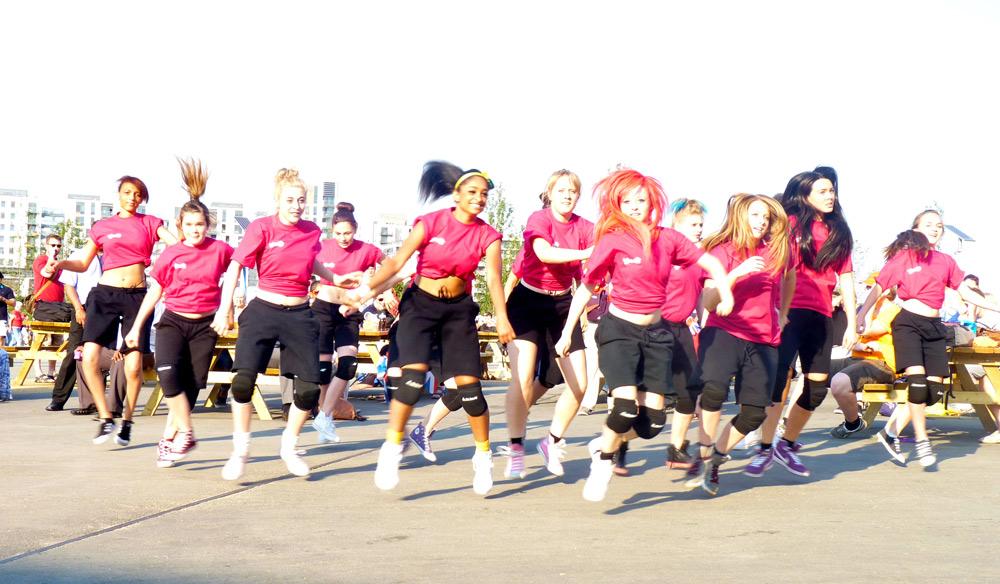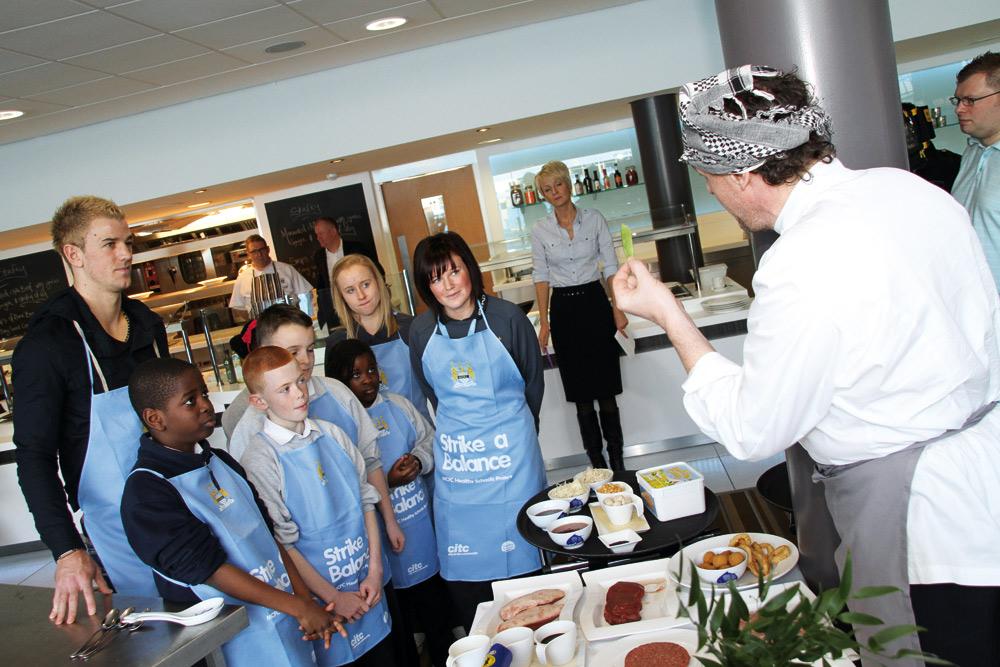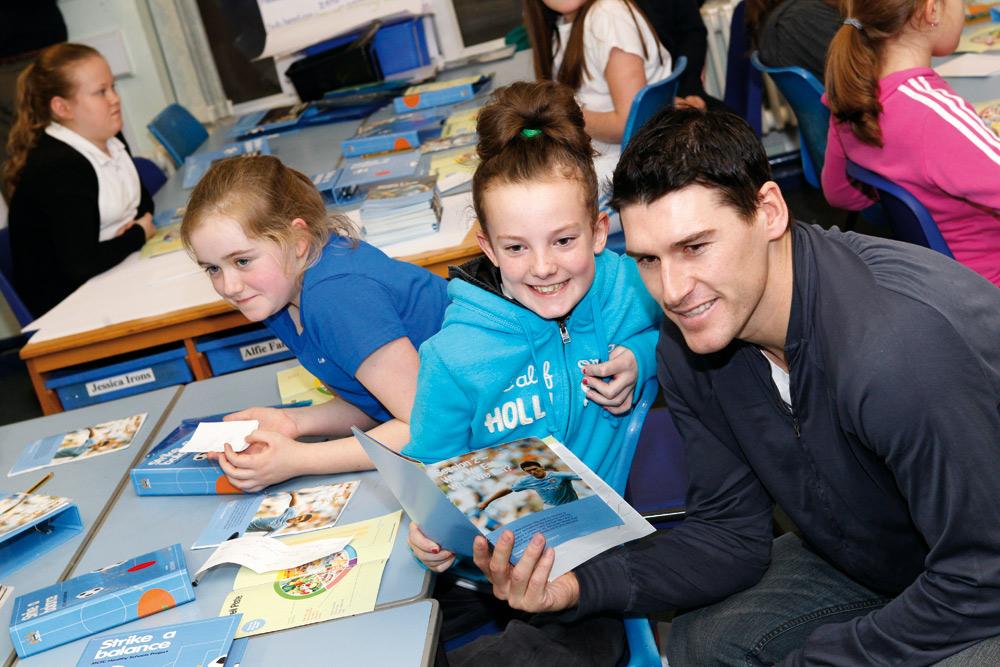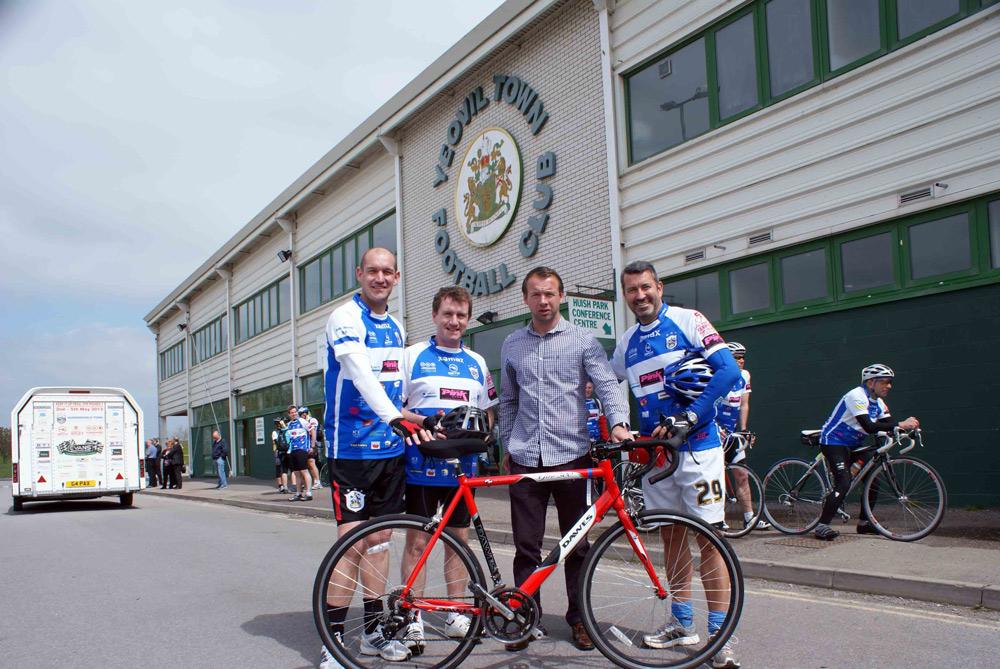Over the past five years the UK’s football industry, backed by its major league and player associations, has taken great strides to further meaningful community engagement. This has involved football clubs positioning themselves at the heart of their respective communities by delivering programmes that seek to improve the wellbeing of people in their local areas. No longer is this work confined to a coach or player being sent to a school with a bag of footballs; today’s schemes are diverse in their reach and target schoolchildren as well as vulnerable people of all ages, backgrounds and abilities.
The more advanced community models are based on a not-for-profit trust or foundation that reports into the parent football club while maintaining its structural and financial independence. Although it will be expected to raise finance through core activity strands such as weekend and holiday football clubs and fitness facilities, trusts typically receive crucial ‘in-kind’ support including PR, HR, IT, legal and administrative resources.
External bodies and corporate sponsors are major sources of funding, and it’s becoming increasingly common for multi-dimensional partnerships to be fostered with organisations such as primary healthcare trusts, the police, local authorities, National Lottery and Comic Relief. Football associations and governing bodies including the Premier League, FA and PFA also play a significant financial role; the Premier League, for example, invested £45m in 2011 to benefit projects that focused on sports participation, health, education or community cohesion.
Derby County in the Community (DCITC)
Derby County Football Club’s award-winning community programme, which achieved charitable trust status in 2008, currently engages over 20,000 adults and children annually, underpinned by funding of £1.3m that has been secured over the past three years from partner organisations. With this financing, DCITC runs football and other physical activity clubs, educational and enterprise initiatives, social inclusion programmes and mental health schemes.
Of particular note is The Movement, a flagship project set up by DCITC and Derby City Council in 2008 to address high levels of inactivity among teenage girls aged 11 to 16 years. Supported by the Premier League and PFA, The Movement has provided 3,000 local girls with affordable dance, gym, swim and workout sessions in schools, village clubs and council-run leisure centres; self-esteem courses; a Movement magazine and interactive website providing advice on healthy lifestyles; and access to a course offering a professional insight into multi-media careers.
DCITC head of community Simon Carnall explains how the initiative has broken down barriers: “Cost, logistics, self-esteem and body image were some of the factors stopping these young people from being active, so we provided safe, local and girls-only environments where they could exercise at affordable rates [£1–1.75 per class]. We focused on the activities they were interested in – such as dance, beauty and the media – rather than football. We gave them a membership card offering incentives to exercise more, as well as finding enthusiastic dance leaders to engage them in lessons and competitions. To date, this has resulted in a 19.5 per cent increase in activity levels among a group that was completely sedentary.”
The success of The Movement has resulted in Derby City Council approaching the trust once more, this time with the challenge of instigating behavioural change among adults suffering from substance misuse. Launched in June 2011 by a partnership formed between DCITC, NHS Derby City, Phoenix Futures and the council, Active Choices is a one-year programme that seeks to improve the physical and mental health of individuals aged over 18 entering Class A drug treatment services.
“We have 91 clients who have been referred to us by Phoenix Futures,” explains Carnall. “As adults returning to the community from prison, they have committed to staying clean during our 48-week holistic intervention programme, which works alongside traditional services. We use free weekly activity sessions – ranging from football to boxing, swimming to gardening – as well as boot camps and healthy eating lessons to keep our clients focused on the attainment of a healthy body and state of mind. Close family members also have free access to exercise as part of our rehabilitation approach. During these sessions, clients are accompanied by one of our motivational staff members, who are qualified Derby County football coaches seconded to the trust.”
A year into Active Choices and the council has been delighted by the 0 per cent re-offending rate among participants, all of whom have maintained activity while on the programme. Of those completing their 48 weeks, 30 per cent have moved on to sustained club activity.
Carnall points out that free access to the council’s leisure centres has been instrumental in the delivery of Active Choices, but he does see an opportunity for commercial providers to get involved in similar projects in the future.
He explains: “It’s a brave new world in terms of community partnerships. Programmes today need to have real and hard outcomes, so we should all be thinking about how we can play our part. And after all, some clients will become future customers of the leisure centres to which they have been introduced by our projects.”
City in the Community (CITC)
Established as a pilot of the PFA’s ‘Football in the Community’ initiative back in 1986, Manchester City’s community scheme began with football coaching and is now one of the industry’s longest-running programmes. Operating today as the self-sustaining City in the Community Foundation (CITC), it works with between 30,000 and 40,000 people a year across 32 projects based around the following five themes: skills and enterprise, health and activity, football and multi-sports, disability sports, and community cohesion.
Partnering with public and private sector organisations, charitable groups, the Premier League and Manchester City Football Club, CITC employs 21 full-time staff including a health & activity manager, Lisa Kimpton. “We started delivering physical activity and fitness sessions to local people about a decade ago,” says Kimpton. “NHS Manchester, which heard of our work, approached us to form a partnership through which we collaborate on conveying a variety of messages, including healthier lifestyles for adult men and mental health support.”
One of CITC’s award-winning projects is Strike a Balance, which launched in February 2011 in collaboration with Healthy Schools Manchester and law firm Hill Dickinson to offer a free, five-week programme about healthy living to Manchester primary schools.
“Healthy Schools Manchester identified that children aged between nine and 10 are at an optimum age to receive information about what they should be eating, ahead of their entry into high school when they will have more freedom over their meal choices,” explains Kimpton. “Over five weeks, we provide one hour of classroom-based learning each week, looking at subjects like healthy eating, food groups, the psychological reasons that determine our food choices, physical activity and a tasting. This is followed by one hour of football-based fitness and movement.
“We find the classroom session on physical activity is always one of the most popular. I’ve just returned from one where we had all the kids do a Gangnam-Style dance, after which we took their pulses and discussed how their heart, blood and muscle groups would be reacting to the exercise.”
In the last academic year, 86 schools took part, with over 3,000 Manchester children enrolled in the Strike a Balance programme. Based on questionnaires provided before and after the five weeks, CITC found that 91 per cent of participants understood how much physical activity they should undertake, with 78 per cent achieving one hour or more of activity using large muscle groups every day. A total of 83 per cent were still able to recognise a balanced diet five weeks after programme completion. CITC football coaches, all with RSPH Awards in Healthier Food and Special Diets, run the project – but is it undoubtedly appearances by player ambassadors such as Joe Hart and Gareth Barry which have helped give Strike a Balance a profile in the community.
“We would like to be seen as a community role model, rather than just a money-making football club,” Kimpton says. “We achieve this by working to make a real difference to issues like childhood obesity.”
Town in the Community
Huddersfield Town’s Football in the Community department – funded mostly by the club, but with some support given by central bodies such as the Football League Trust – delivers fitness tips to hundreds of local youngsters through its soccer schools. Mental health is also on the agenda, with the community team using some league games to raise the profile of illnesses such as dementia among adult supporters.
Since Huddersfield Town’s training ground, Canalside Sports Complex, is open to the public, the local community also has access to an on-site gym, football pitches, dance studio, bowling, croquet and hockey clubs at competitive prices. The team’s technical and playing staff are regularly recruited to spread the word about the football club’s fitness and community work.
Making local headlines of late has been Huddersfield Town’s Keep It Up campaign, a fundraising scheme that jointly and evenly benefits the Huddersfield Town Academy and local charity the Yorkshire Air Ambulance. Reaching out to the community, especially supporters, the campaign has seen large-scale sponsored walks and cycling events organised by the club to raise an impressive £720,000 over the past three years.
While the main motivating factor is the chance for fans to come together before a Championship game and make a genuine difference, Huddersfield Town also furnishes participants with health and training advice ahead of the flagship ‘Walk for Pounds’ and ‘Pedal for Pounds’ community events, which have a heavy emphasis on the promotion of the benefits of physical activity.
The latest walk, which took place in November 2012 and which garnered support from a growing set of businesses, saw the football club’s chair Dean Hoyle and commercial director Sean Jarvis lead 175 fans across a 19-mile route to a game in Barnsley. Even more strenuous was the latest flagship cycle, in which 300 fans made the three- to four-day bike journey from Huddersfield to Yeovil in time for another match.
It’s the overwhelming response to these, and other grassroots fundraising initiatives, that led to Hoyle setting up a registered charity in summer 2012. Charged with the mission of ‘making a difference’ in the West Yorkshire region, especially among young people who were in need, the Huddersfield Town Foundation has kicked off proceedings by initiating five breakfast clubs at junior schools, so that 250 kids from deprived backgrounds receive a nutritious and healthy start to the day.
Such is the commitment to the foundation that Huddersfield Town will double every pound generated by fundraising projects, enabling more Early Kick-Off breakfast clubs to be launched throughout 2013.




























































